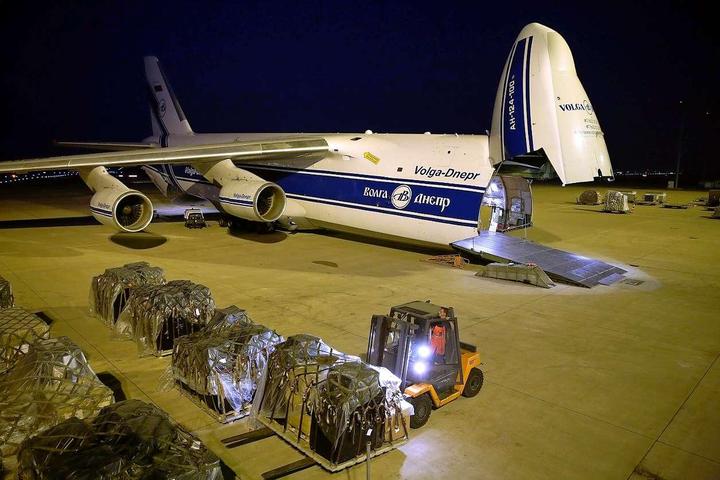
German Military Aid to the Kurdish Peshmerga
Stephan Wallace
Defense and Security Policy Analyst
Stephan Wallace is a defense and security policy analyst following political, military, and economic developments in Europe. He has worked more than 33 years on this area for the U.S. government, most recently for the U.S. Department of Defense.
The German government’s decision to provide arms and military equipment to aid the Kurdish Regional Government in its fight against the Islamic State in Iraq and the Levant provides further evidence of its greater willingness to take on responsibility for international peace and security. The move will be welcomed by Germany’s allies and partners, who will see Germany as a more reliable security partner, even though its leaders have been careful to portray the decision as an exceptional response that does not signal a fundamental change in Germany’s restrictive approach to military intervention or arms sales to areas of conflict.
The government decided on 31 August to provide substantial lethal—as well as non-lethal—military equipment to the Kurdish Regional Government’s armed forces (Peshmerga), in addition to the humanitarian relief supplies and medical aid Germany had been providing to northern Iraq since mid-August. The decision came in response to a request for aid from the Kurdish Regional Government, which had the approval of Iraq’s central government. It will be carried out in coordination with similar efforts by the United States and European partners to counter the recent military gains by the Islamic State in Iraq. [1]
The Kurdistan Regional Government and Peshmerga are official organizations recognized by Iraq’s constitution. Germany can provide arms and military equipment to the Peshmerga without confronting the legal and political challenges involved in arming groups with more questionable claims to legitimacy, such as the opposition groups fighting against the Islamic State in neighboring Syria. Inspection of the German arms shipments by Iraqi authorities in Baghdad prior to their distribution in Irbil further demonstrates Germany’s respect for the established authorities in Iraq. [2]
Scope of German Aid to the Peshmerga
The planned delivery of arms and equipment to the Peshmerga includes assault rifles, machine guns, pistols, anti-tank weapons, and hand grenades, as well as helmets, body armor, ballistic safety glasses, night-vision devices, mine-detection systems, and radios. It also includes logistics support in the form of trucks, utility vehicles, tents, and field kitchens. The arms and equipment will be delivered in three tranches, with most of it to be delivered in the first two tranches. [3] According to government spokesmen, the first tranche will be used to equip a Peshmerga fighting force of 4,000 troops. [4]
|
German Military Arms and Equipment for the Kurdish Peshmerga |
|
| 8,000 G3 assault rifles with 2 million rounds of 7.62mm ammunition | first two tranches (half in each tranche) |
| 40 MG3 machine guns with 1 million rounds of 7.62mm ammunition | first two tranches (half in each tranche) |
| 8,000 G36 assault rifles with 4 million rounds of 5.56mm ammunition | third tranche |
| 8,000 Walther P1 pistols with 1 million rounds of 9mm ammunition | first two tranches (half in each tranche) |
| 30 MILAN anti-tank guided missile launchers with 500 anti-tank rounds | two thirds in the first tranche, one third in second |
| 200 Panzerfaust 3 light anti-tank weapons with 2,500 rounds | first two tranches (half in each tranche) |
| 40 Carl Gustaf 84mm recoilless rifles with 1,000 battlefield illumination rounds | first two tranches (half in each tranche) |
| 100 flare guns (signal pistols) with 4,000 battlefield illumination rounds | first two tranches (half in each tranche) |
| 10,000 hand grenades | first two tranches (half in each tranche) |
| 4,000 sets of personal protection equipment (helmets, body armor, ballistic safety glasses) | first tranche, except for 2,000 pairs of ballistic safety glasses in the second tranche |
| 270 personal medical kits | 170 in first tranche, 100 in the second |
A six-member German military liaison team was established at the German Consulate General in Irbil on 27 August to coordinate the distribution of German arms and equipment, as well as humanitarian supplies. According to a report by Deutsche Welle, the military liaison team is there not only to distribute arms and military equipment, but also to train Kurdish fighters on their use. Training on some of the more complex systems, such as MILAN anti-tank guided missiles, Dingo wheeled armored vehicles, and a tanker truck, will be provided in Germany. [5][6]
The first delivery of German military equipment took place on 5 September, just five days after the government’s decision and in time to demonstrate to Germany’s allies at the NATO summit in Wales.
Berlin’s commitment to combating the threat posed by the Islamic State is about 80 tons of military equipment loaded aboard an An-124 heavy transport aircraft at the Leipzig-Halle airfield and flown to Iraq by Russia’s Volga-Dnepr Airlines. After an intermediary stop in Baghdad to allow Iraqi authorities to verify the shipment, the An-124 delivered the shipment to the Kurds in Irbil the morning of 5 September. The initial shipment contained 4,000 helmets and sets of body armor, 700 SEM 52S mobile radios, 680 Zeiss Fero Z-51 night vision devices, and equipment for mine detection and munitions disposal. [7][8][9]
Germany Part of the “Core Coalition” Against the Islamic State
Germany’s rapid provision of military support to the Peshmerga put its government in a strong position for the discussion of Allied responses to the Islamic State threat that took place on the margins of the NATO summit in Wales on 5 September. The government’s military aid package was more immediate and extensive than had been expected, securing Germany’s place among the ten-member “core coalition” whose foreign and defense ministers met that morning to develop a strategy for defeating the Islamic State in Iraq and Syria. The group proposed a multidimensional strategy of strengthening local partners on the ground, attacking Islamic State forces from the air, stemming the group’s funding, and providing humanitarian assistance to populations displaced by Islamic State advances. [10][11]
Questions about the term “core coalition” put government press spokesman Steffen Seibert on the defensive during the government press conference on 8 September. Seibert tried to quash suggestions that the group bore any similarity to past “coalitions of the willing” and insisted the group was merely a clearing house for coordinating the various measures countries in the group are undertaking against the Islamic State. [12]
Policy Change or Exceptional Response?
The government’s decision to send arms to the Peshmerga sparked an intense—and for some unwelcome—debate inside Germany over whether and to what degree the decision signaled a break from Germany’s restrictive approach to military intervention and arms exports to areas of conflict. According to a report in the Süddeutsche Zeitung, the leaders of the Social Democratic Party (SPD) and Christian Social Union (CSU) were privately critical of defense minister Ursula von der Leyen for stating in an interview with Die Zeit that it was important that the government be prepared to “set aside taboos” and have an open discussion. [13][14] In subsequent statements, government and coalition leaders emphasized the exceptional nature of the government’s decision and sought to counter suggestions that it marked a fundamental policy change.
In the Bundestag debate on 1 September, Chancellor Angela Merkel and SPD Parliamentary Group leader Thomas Oppermann said the government’s decision to arm the Kurdish Peshmerga was an exceptional step justified by the extreme brutality of the Islamic State’s actions in northern Iraq and the danger to German security interests of allowing extremists and terrorists to create a safe haven there. While acknowledging the possibility that some of the arms could fall into the wrong hands, Merkel and Oppermann both insisted that this danger was outweighed by the already exigent threat posed by the Islamic State’s capture of arms and supplies from Iraq. Oppermann argued that the government’s decision should not be seen as breaking long-standing taboos in Germany’s foreign and security policy against exporting arms to areas of conflict. [15]
Foreign Minister Frank-Walter Steinmeier also said he disagreed with those who have characterized the government’s decision as a fundamental change in foreign policy. In a Wall Street Journal interview published on 2 September, Steinmeier said there has been no paradigm shift away from Germany’s restrictive approach to military intervention and arms exports. However, he insisted that Germany cannot hide behind these principles to avoid taking responsible decisions in the face of a threat like that posed by the Islamic State. Steinmeier noted that Germany is properly assuming more responsibility in the world, not just in the fight against the Islamic State, but also in the Middle East, Africa, Afghanistan, and in the search for a political solution to the conflict between Russia and Ukraine. [16]
Stephan Wallace is a defense and security policy analyst following political, military, and economic developments in Europe. He has worked more than 33 years on this area for the U.S. government, most recently for the U.S. Department of Defense. He can be contacted by email at wallace.stephan@gmail.com. The views expressed are those of the author alone.
Fair Use and Content Disclaimer
This study contains copyrighted material the use of which has not always been specifically authorized by the copyright owner. The study and all materials within it are distributed without profit to those who have expressed a prior interest in receiving the information for research and educational purposes. We believe this constitutes a ‘fair use’ of any copyrighted material contained herein as provided for in section 107 of the U.S. Copyright Law. If you wish to use copyrighted material from this study for purposes that go beyond ‘fair use’, you must obtain permission from the copyright owner.
[1] German Ministry of Defense/Press and Information Staff, Unterstützung der Regierung der Autonomen Region Irakisch-Kurdistan bei der Versorgung der Flüchtlinge und beim Kampf gegen den Islamischen Staat im Nordirak, 31 August 2014.
[2] “Deutsche Militärausrüstung im Irak angekommen,” Frankfurter Allgemeine Zeitung, 5 September 2014.
[3] German Ministry of Defense, Unterstützung der Regierung der Autonomen Region Irakish-Kurdistan bei der Versorgung der Flüchtlinge und beim kampf gegen den Islamischen Staat im Nordirak, 31 August 2014.
[4] German Foreign Office, Regierungspressekonferenz vom 1. September, 1 September 2014.
[5] Ralf Bonk, German Ministry of Defense/Press and Information Staff, Irak: Militärisches Verbindungselement in Erbil eingerichtet, 27 August 2014 and “German military gear delivered to Iraqi Kurds,” Deutsche Welle, 5 September 2014.
[6]
[7] German Ministry of Defense/Bundeswehr Joint Operations Command, Erster Transport militärischer Ausrüstuingsgüter ist in Erbil angekommen, 5 September 2014; “Deutsche Militärausrüstung im Irak angekommen,” Frankfurter Allegemeine Zeitung, 5 September 2014; Lolita Baldor, “Kerry, Hagel urge coalition against Islamic State,” AP/Military Times, 5 September 2014.
[8]
[9]
[10] Lolita Baldor, “Kerry, Hagel urge coalition against Islamic State,” AP/Military Times, 5 September 2014; Helene Cooper, “Obama Enlists 9 Allies to Help in the Battle Against ISIS,” New York Times, 5 September 2014.
[11]
[12] German Foreign Office, Erklärungen des Sprechers / der Sprecherin des Auswärtigen Amts in der Bundespressekonferenz vom 8. September 2014.
[13] Frank-Walter Steinmeier, “Why Germany is Sending Weapons to Iraq,” German Foreign Office/Wall Street Journal, 2 September 2014; Christoph Hickmann, “Gabriel und Seehofer kritisieren von der Leyen,” Süddeutsche Zeitung, 2 September 2014.
[14]
[15] German Bundestag, Bundestag unterstützt Waffenlieferungen, 1 September 2014.
[16] Frank-Walter Steinmeier, “Why Germany is Sending Weapons to Iraq,” German Foreign Office/Wall Street Journal, 2 September 2014.









